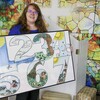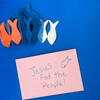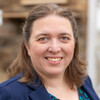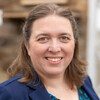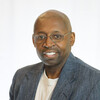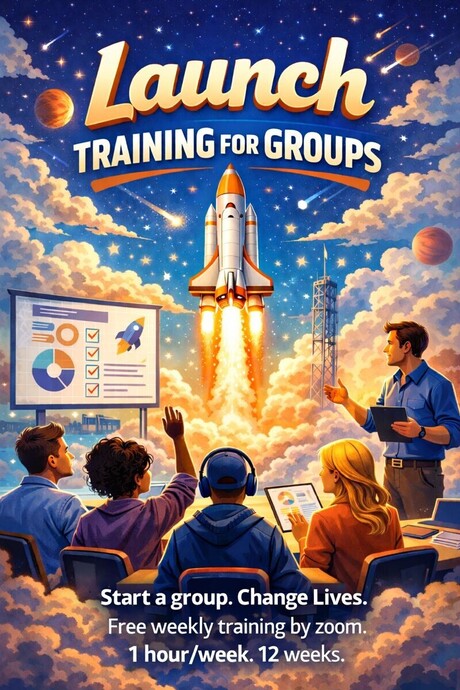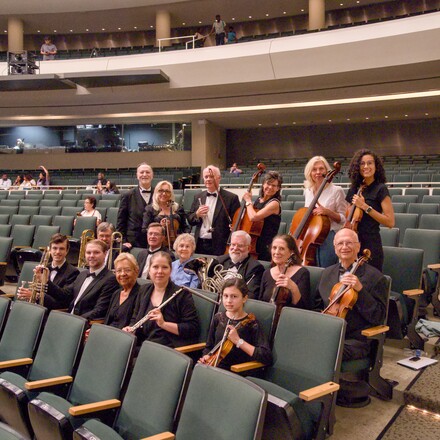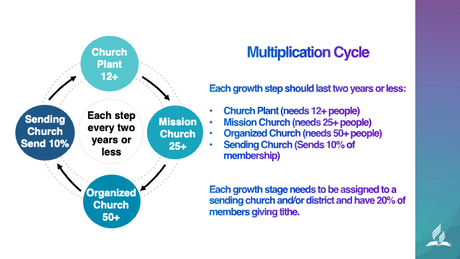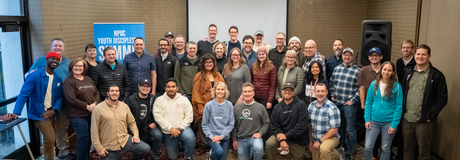EuGene Lewis, long-time regional leader in the Pacific Northwest, has accepted an invitation from North Pacific Union to serve as vice president for regional affairs beginning in January 2025. He steps into this role following the dedicated service of Byron Dulan, who recently retired.
“As union leaders engaged with various regional ministry constituents, we heard a clear desire for a leader with deep history and understanding of regional work in the Pacific Northwest,” shared John Freedman, NPUC president. “I’ve followed Lewis’ ministry for many years and have seen how God has equipped him with perseverance, discernment, stewardship and leadership capabilities.”
Lewis brings a wealth of experience and a deep connection to ministry in the Pacific Northwest, shaped by his long tenure in Washington Conference and a meaningful beginning in Upper Columbia Conference.
Lewis earned the following academic degrees and certifications: Master of Arts in pastoral ministry from Andrews University; Bachelor of Arts in theology with a minor in history from Oakwood College (now University); Associate of Arts in political science from Los Angeles Southwest College; diplomas in leadership management and supervisory skills from the U.S. Air Force; and a certificate in moral reconation therapy from Washington State Department of Corrections.
In his new role, Lewis will oversee outreach ministries, prison ministries and additional areas of ministry, building on a strong foundation of service and leadership.
"Throughout my ministry, I have witnessed God's unwavering love and care for the Pacific Northwest," Lewis said. "As we step into this next chapter together, I am filled with excitement and anticipation for what God will reveal to us once again. Through His guidance, I am confident that we will accomplish His goals, united in purpose, faith and His boundless grace."
He is supported in ministry by his wife, Johnnette M. Lewis; his adult sons, EuGene J. Lewis and Alexander B. Lewis; and his young adult grandson, Brandon G. Lewis.
To offer the Northwest Adventist family an opportunity to get to know him better, Lewis has graciously shared his remarkable life story, which he initially included with his resume for the executive committee. This inspiring story is shared here with his permission.
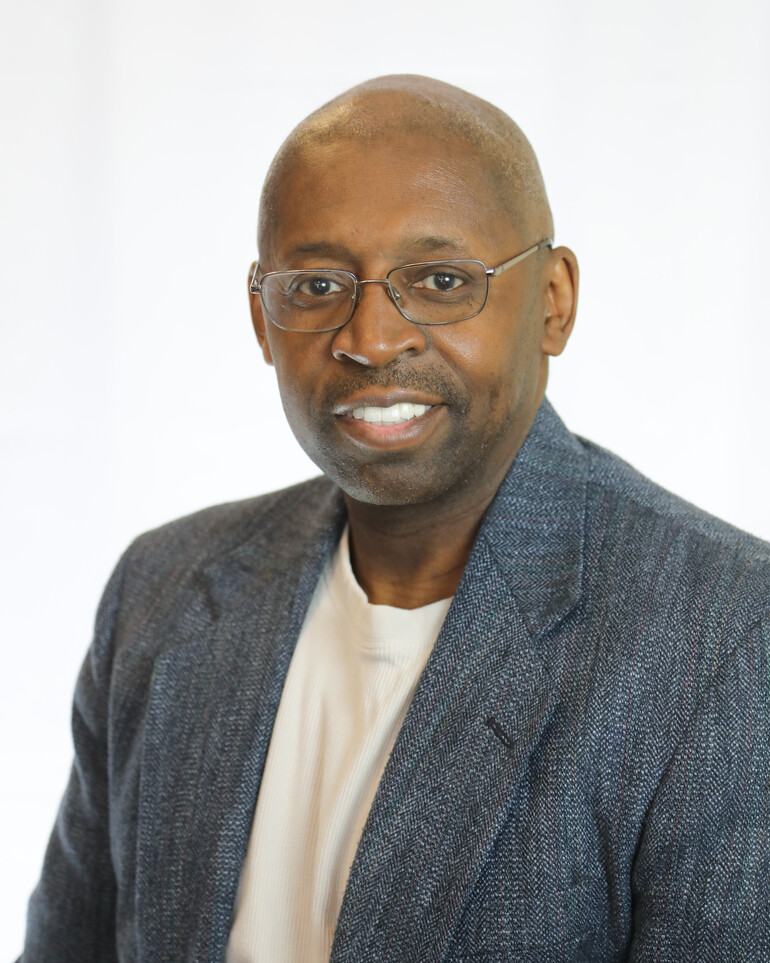
EuGene Lewis, a long-time regional leader in the Pacific Northwest, is the new NPUC regional vice president beginning in January 2025. He steps into this role following the dedicated service of Byron Dulan, who recently retired.
Growing Up in Omaha, Nebraska
Lewis began his life in Omaha, Nebraska, as the 11th child of 15 fifteen children born to DeAuthor and Rosie Lee Lewis. His spiritual journey traces back to kindergarten, where his mother often reminded him God's favor was upon him.
At the age of 8, he and his brother, Michael, got jobs as paperboys. However, the money the two of them earned fell short of meeting their personal needs. Looking for opportunities to earn extra money, he would scout out homes on his paper route that needed their lawns cut in the summer and their sidewalks shoveled in the winter. The additional funds he earned were used to purchase the things his parents could ill afford.
Lewis continued to work his job as a paperboy during his adolescent years. The summer was reserved for working at Camp Sheldon, three hours away from home. Unbeknown to Lewis, God was beginning to make Himself known. Lewis would go about his work as a stable hand caring for the horses and taking young children horseback riding on the camp trails. He often found himself thinking about the things his mother shared with him about God.
Whenever the headmaster gave him time off from his duties, he would go canoeing, swimming or fishing. However, what he enjoyed most was riding alone with his thoughts upon his favorite horse along North Platte River miles away from the camp.
Introduction to Seventh-day Adventism
One day after arriving home from camp, he learned that Sharon Adventist Church had planned a crusade for the fall. The crusade would take place within walking distance from his home. Days later, two Bible workers from Sharon Church stopped by the Lewis home. Lewis' mother invited them in.
After some brief small talk, they asked her if she knew about the Sabbath. She told them, “No.” The Bible workers asked her if she would be interested in taking Bible studies. She told them, “Yes.” She then instructed the Bible workers to give her son — Lewis — who just entered the room, the Bible lessons, too.
The Bible workers told young Lewis they would be back the following week to see how he was coming along. Shortly, after the Bible workers left, Lewis remembered that there was a picture of Jesus with the world in His hands hanging on the living room wall. Beneath his hands was a phone number with instructions for how to order Bible lessons. Lewis did not trust the Bible workers or their lessons. So, in secret, he called the number on the picture and requested his own Bible lessons.
Years later, he discovered that the lessons he ordered were from Voice of Prophecy, the same publishing house that printed the lessons the Bible workers gave him. Surely God was making Himself known.
Family Joins the Adventist Church
Lewis, as a young man, studied both sets of lessons and found that there wasn’t much difference between the two lessons, but never told anyone his first impression. The Bible workers made their visits as promised. They graded the lessons they gave him and found that he understood the material quite well.
At the conclusion of the final lesson, Lewis, his mother and the Bible workers met. The Bible workers were anxious to know especially what this young man was going to do with what he learned from the lessons. Lewis' mother was anxious to know the answer to the Sabbath question, as well. So, she posed that question to her son: Is the Sabbath on Saturday?
He answered by saying, “I believe so.”
Not satisfied with that answer, she asked him a second time, “EuGene, is the Sabbath Saturday?”
This time he answered, “I’m pretty sure it is.”
Still not satisfied, she asked him a third time, “EuGene, is Saturday the Sabbath and does the Bible say so?”
“Yes, Mother. According to the Bible, Saturday is the true Sabbath.”
“Okay. That’s what I wanted to know. We believe in what the Bible teaches and not what man says about the Bible.”
And without hesitation, his mother — in the presence of the two Bible workers — told her son to go tell Reverend Thomas at Corinth Baptist Church to take the family’s names off his church roll.
Upon learning that the Lewis family was leaving his church, Thomas was hot as fish grease. He lost the largest and most faithful family in his congregation.
The Bible workers, who were waiting for Lewis to return from Thomas' office, were elated when his mother told them they would be joining Sharon Church. Lewis — who was 12 at the time — along with his mother and four of his siblings were baptized on Sept. 21 that year by Pastor Don Crowder.
Little did Crowder know that the boy he was baptizing would succeed him someday as pastor of Emerald City Community Adventist Church in Seattle, Washington, for 30 years. God was with him and would continue to reveal Himself.
Basketball Career and the U.S. Air Force
Lewis enjoyed school. He was an avid reader, was a good student and excelled in sports. In his junior year of high school, he was offered a basketball scholarship to college if he would transfer high schools. Little did he know that his decision to transfer put him closer to his future wife, Johnnette — nicknamed Pye.
They went to the same grade school but didn’t see each other again until he transferred. One morning while she was on her way to class, they saw each other once again. Lewis, having done well academically during his freshman through junior years of high school, had one class to finish his senior year. The extra time he had on his hands was spent playing basketball and getting better acquainted with Pye.
Pye’s father pastored the local Tabernacle Church of God and Christ Church. To win the two of them over, Lewis would go to her church on Sunday, and she would go to church with him on Saturday. This became their practice during the four years they dated until Lewis left college to play basketball for the U.S. Air Force.
Lewis excelled on and off the basketball court in the Air Force. He started out as a guard on the basketball team. As a player and later a coach, he won four championships, four scoring titles and an MVP award after scoring 52 points in an Air Force base basketball all-star game. Off the court, he was promoted below the zone and achieved the rank of E-5, staff sergeant within three and a half years of service, a major achievement when you consider some servicemen retire after 20 years of service at that rank.
Notwithstanding, he was given the opportunity to reenlist as a commission officer at the rank of first lieutenant. However, he turned down the offer twice because he didn’t join the Air Force to make it a career. He joined because basketball gave him the opportunity to take care of his family and do something he loved to do. When basketball was over, he reasoned, so was his time in the Air Force.
It took marrying Pye, having their first son and expecting their second son before he started to plan for life after basketball. While stationed at Fairchild Air Force base in Spokane, Washington, he began looking for a career move.
It didn’t take long! While reading the local newspaper, one particular article caught his attention. A Black man named James E. Chase was running for mayor. Spokane at the time was about 97% Caucasian. Lewis did some research and found his phone number. He called Chase and, after a brief introduction, he made him an offer he couldn’t refuse.
He told Chase that he didn’t stand a chance in hell of winning but if he had the guts to run against those odds, he would help him and he would do it for free. Chase — who was more than twice his age — accepted his offer. The Lord was with them both. Chase won the election and Lewis was offered a job. However, the Lord had other plans for his life.
Lewis' Call to Ministry
After the celebration and settling into his newly found success, Lewis was appointed Spokane Riverpark board treasurer. The Fairchild Air Force base base commander gave him permission to work as a noncommission liaison officer on behalf of the base and the City of Spokane.
The joy of his success didn’t last too long, as Lewis began to sense God calling him into ministry. He toyed with the idea in his mind. Yet the call grew stronger. So, he decided to reach out to Chase to see what he thought of the idea. Chase told Lewis to drop by his office where they joked that someday Lewis would take Chase’s office. They both laughed and then things got serious.
Chase put his hands on Lewis' shoulder and gave a profound speech: “Lewis, the boys, the powers to be in this city like you. They saw what you did to help get me elected and they are willing to help you fulfill your dream. However, son, if you choose to do something other than God’s will, you might have some success. But in the end, your political success will be without any real joy because ‘the joy of the Lord is your strength.’ And you need that joy to be happy in whatever you choose to do in life.”
Thus, Lewis started looking for an Adventist church to attend. He found a small company of Adventist believers worshiping on the north side of Spokane. A year later, after some intense struggles with the Lord, he decided to heed the call and was rebaptized at New Hope Adventist Company in Spokane. His wife Pye joined him as an Adventist believer a year later on Christmas Day 1982.
It didn’t take long before he was voted in by the company to serve as head elder and treasurer. As the company grew, Lewis caught the eye of Elder Jerry Patzer, then UCC secretary.
When Patzer was voted in as president, he invited Lewis to serve as the first African American on UCC executive committee. He served on that committee from 1983–1986. During that time, he also pastored the company before separating from the Air Force after nine years of service in 1986.
Completing a Theology Degree at Oakwood College
With the blessings and encouragement of both Chase and Patzer, Lewis did not hesitate to do what he felt God was telling him to do. The day after he separated from the AirForce, he moved his family to Huntsville, Alabama, so he could study at Oakwood University to officially become a minister.
They found a place to live not far from the campus. Six weeks after being on campus, he was walking from the college administration building to the religion complex when two men drove up alongside him in a blue Dodge Aries. They stopped the car and asked him to get in.
Lewis hesitated before he finally felt comfortable enough to get in. The two men in the car were Elder Charles Dudley and Elder Eric C. Ward. These two men were pillars within the regional work in North American Division.
Dudley spoke first. He told Lewis he was president of South Central Conference and that Ward had been watching him since the day he arrived on campus. He then told Lewis that Ward liked the way he carried himself and wanted him to become his associate pastor at Oakwood College Church. He went on to say that Ward would be a great mentor.
Lewis was surprised by the offer but ever so grateful. Ward told him he would be given a salary, tuition, allowance to pay for his children to go to Oakwood Adventist Academy and a church office.
Surely God was leading the way. Lewis came from a small company in the Pacific Northwest and was given the second chair in the most prestigious African American Adventist church in the world.
Moreover, he had Elder Calvin E. Mosely, who trained close to 75% of the African American pastorate, as his head elder and counselor. He had Charles Dudley, South Central Conference president and dean among the nine African American regional conference presidents, to look up to for wisdom and insights into what it means to be a strong leader.
Notwithstanding, he had Ward, the most respected pastor who could be found anywhere within the denomination as his mentor, spiritual father and lifelong friend. Ward would not only hone Lewis' ministerial skills but he would also lay the foundation for his philosophy on life itself.
What his mother told him as a child now made sense. God was watching over him and had shown him favor.
The Decision to Accept a Call to Upper Columbia Conference
Graduation came quickly. Ward and Dudley wanted Lewis to remain at Oakwood College Church after graduation. Three other conferences had also extended him a call to come to their conference. UCC was one of those conferences.
God knew that Lewis wanted to remain at Oakwood College Church. However, He had other plans for him back in the Pacific Northwest. After family devotion one morning, God moved upon Pye’s heart. She told her husband he need not pray that prayer for God to tell him where to go. God had spoken to her on his behalf. They were to return to the Pacific Northwest to finish what they had started.
Patzer, who tried to get Lewis to leave Oakwood College a year earlier to complete his senior year at Walla Walla University so he could simultaneously pastor Pasco Ephesus Church, was delighted to know that he was interested in coming back to the Pacific Northwest.
Patzer called Elder Wayne Shepperd, NPUC regional director, to travel to Alabama on his behalf and extend a call to Lewis.
Lewis told Shepperd he would come back if they could agree to three conditions. Number one: He could pastor both Pasco Ephesus Church and New Hope Company in Spokane, the only two African American churches in UCC. Number two: They wouldn’t force him to go to Andrews University if they got upset with him. Number three: The conference would subsidize his extra travel between the two churches that were 144 miles apart.
Shepperd told Lewis he would get back to him in a couple of days. He wasn’t sure if Patzer would agree to his terms. A few days later, Shepperd called Lewis as promised and told him the conference agreed to his conditions and wanted him to start his ministry right after graduation.
Lewis told them they would have to wait until July. Ward was away, and Lewis wasn’t going to leave Oakwood until he returned. They agreed to wait. Lewis updated Pye, who was with her family in Omaha, Nebraska, with the news: “We are going back to where it all started.”
Upon Ward’s arrival, he too was given the update, and, with mixed feelings, he told Lewis, “If anybody can work with those boys out there and do a good job, it’s you. If you run into any difficulty outside your reach, you know you have our support back here. We are just a phone call away.”
Without hesitation, he and his family made their way back to the Pacific Northwest to begin their ministry on July 1, 1988.
Soon after arriving at the UCC office in Spokane, Lewis met with the conference administration team. Patzer recommended that the family move to Pasco, Washington. They found a home next door to the city manager and across the street from the mayor of Pasco.
The move proved to be no coincidence. The mayor of Pasco and the city manager got to know Lewis quite well, and his visibility in the public square proved to be a blessing to his family and the community he was called to serve. With the help of the Lord, the Pasco Ephesus Church mortgage got paid off, relationships were established and new people were baptized into the church.
New Hope Company, where Lewis had been rebaptized, had fallen into neglect. Only seven members remained from the group he once knew. Lewis called the group together. They met with him at the East 1900 block of Second Avenue in Spokane. There they prayed over the lot by which they stood. After they prayed, Lewis invited them to vote to give him $9,000 of the $10,000 they had in the bank to purchase that lot. Lewis had visions of building a church on that lot.
The following year, with their permission, he took the equity out of the first lot to purchase the lot next to it. He did this three times until the company owned the entire city block. One lot came with a house. So, he got the head deacon, who was a builder, to restore the house. Once the house was complete, they rented it out to keep money coming in until the Lord gave Lewis the signal that it was time to build.
Two years and 10 months later, the Lord gave the signal. Without hesitation, construction for the New Hope Company facility began. By this time, they had grown to 35 members, and, due to the location and needs of the community, the conference permitted them to change its name. An additional 175 people joined the church during that phase of the building process. Through the rain, snow and labor conflicts, it all worked out together for the good.
On April 30, 1994, East Central Community Adventist Church held its grand opening and opened its doors to the community. Every effort was made to open those doors debt free. Lewis’ motivation and drive got the church close to accomplishing that goal. The financial debt on the building was $48,700 the day the church opened — not bad when you considered the building was valued at $1.5 million. Surely the Lord was with the church.
The Transition to Emerald City Community Adventist Church
Four months after the grand opening of East Central Community Church, Elder Jaecks from Washington Conference extended a call to Lewis to come to Emerald City Community Adventist Church.
He was somewhat reluctant to go as he would be leaving the smallest churches and going to the largest African American church within NPUC.
Lewis’ mentors Ward and Dudley — who happened to be with him in Spokane the day Jaecks called — reminded him that “his gifts would make room for him.”
With that in mind and without hesitation, Lewis accepted the call to pastor Emerald City Community Church. The church board met with Lewis on Sept. 11, 1994 and voted that he be their pastor. Lewis and his family started their ministry at Emerald City Community Church on Oct. 11, 1994.
During this time, Lewis completed his master’s degree from Andrews University, on good terms, and followed God’s leading through a host of ministry and mission accomplishments.
Lewis’ leadership tenure at Emerald City Community Church witnessed 581 baptisms and thousands more baptisms during mission trips to Zambia and South Africa.
Lewis led his church in community engagement opportunities, with various community service activities, feeding programs, emergency distributions, financial health seminars, prison ministry activities, biblical justice and more. Lewis and Emerald City Community Church received community awards and recognition for their efforts to share the love of Jesus with their neighbors in Seattle.
The church’s notable financial achievements during this time include the burning of the church’s mortgage in 1996, just 10 years after its construction. Later, the church added an elevator in 1998 for better accessibility in the facility, purchased a rental house in 2002 for mission and ministry income, and engaged in various facility upgrades in 1995, 2016 and 2020.
In 2006, Lewis served as Washington Conference regional ministry coordinator, served on 18 different church-related boards and committees, and partnered with dozens of local service organizations to minister to the needs of the community. He also mentored 12 associate pastors, of whom 10 are currently ordained and pastoring their own churches.
As regional coordinator, Lewis launched the annual Days of Unity program in 2009 as a regional rally of churches to begin the year with prayer, worship and togetherness. Pye catered thousands of gourmet meals for ministry and mission events. The couple often hosted theology students in their home for conversation and homemade meals.
“It has been said that life is a series of new beginnings,” Lewis said, as he reflected on his life and career. “Indeed, our God is continuously calling us to follow into paths unknown, giving us wisdom and strength for every challenge, and often surprising us with unexpected rewards for putting our trust in Him.”

